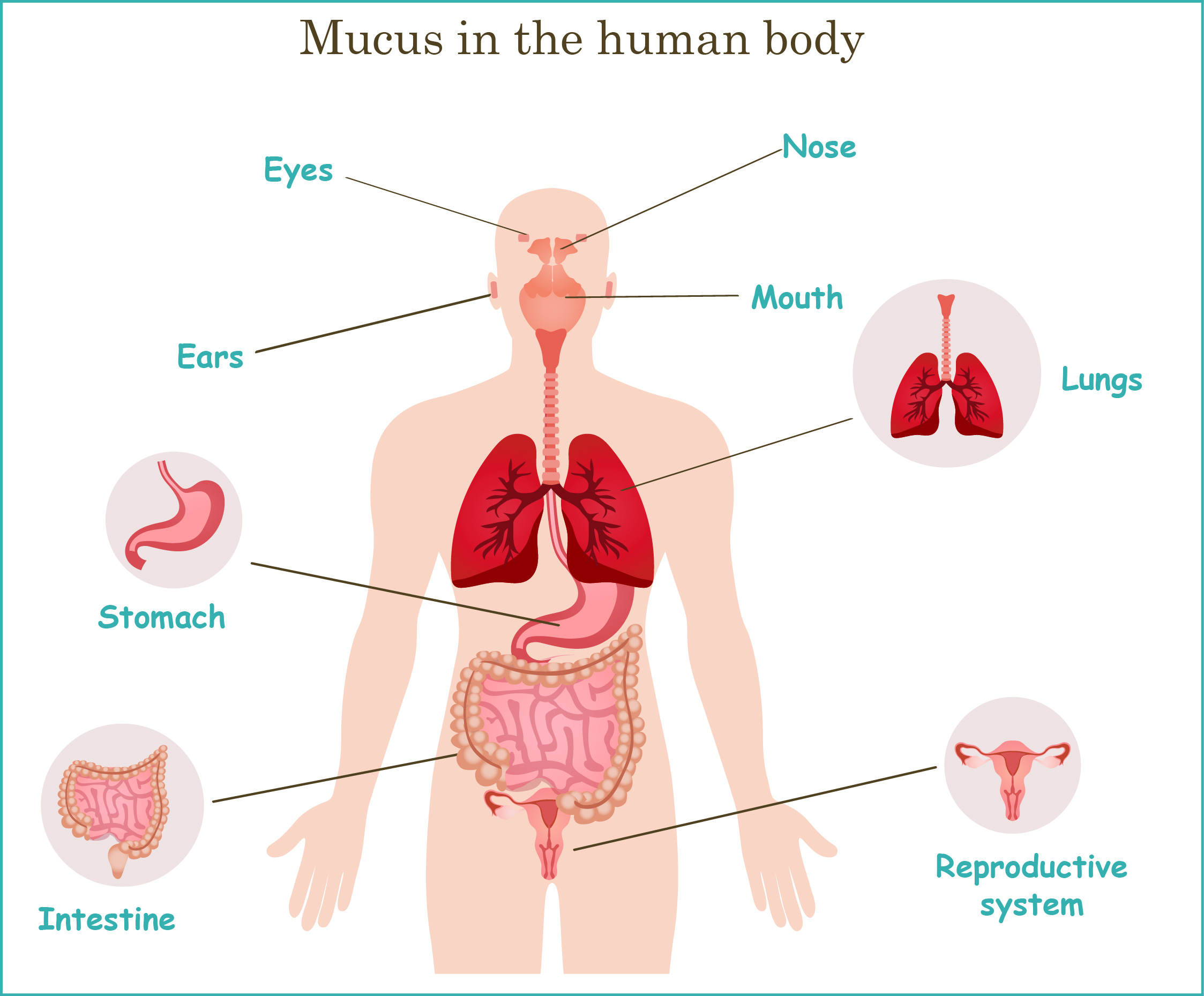Human mucus

Mucus in the human body
What is mucus?
Mucus is a complex biological material whose role in human health is to lubricate and protect the organs by acting as a physical barrier against pathogens and external aggressions:
- Lungs and respiratory airways
- Vagina
- Eyes
- Gastrointestinal tract
Mucus is a highly-hydrated (≈ 98 % water) porous network whose backbone is mainly composed of mucins, high molecular weight glycoproteins.
Mucus Clearance in lungs
The mobility of mucus in the airways is essential to prevent infections and its motion mostly results from cilia movement and contractions. Mucus rheology will quantify its elastic, viscous and plastic properties. The elasticity and plasticity of mucus at normal levels ensure a protective barrier and prevent its flow under gravity. However, at abnormally high levels, these properties block the mucociliary clearance leading to severe diseases.
Preclinical and clinical applications

Bronchial epithelium structure
Mucus handling can be tricky:
How do I get mucus? How should I store samples? How long can I wait before testing them? How should I prepare the samples? How significant are the results? How can I interpret them?
Contact us and we will answer all your mucus-related questions.
Contact us!
